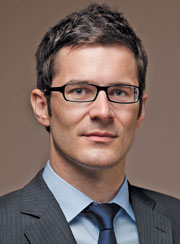Chinese investors spent $12.2 billion in foreign direct investment in the first three quarters of 2013, on the way to a record-setting year, according to Rhodium Group’s Thilo Hanemann. As a result, the number of jobs created by majority Chinese-owned firms in the US grew to over 70,000.
Communities in east Tennessee and on the Texas-Mexico border are reaping the benefits. Both projects are first time FDI ventures for their parent companies.
In Cuidad Juarez, Mexico, Polygroup Industrias Mexico S.A. de C.V., will manufacture artificial Christmas trees and related products, plastic swimming pools and pool accessories for distribution in North America and Latin America.
A mid-2014 expansion of a warehouse/distribution facility in El Paso is also in the works. That will serve as a warehouse and distribution center for raw materials heading south to Juarez and finished goods heading north in the U.S. to Polygroup’s customer base.

A Polygroup unit will manufacture artificial Christmas products and plastic swimming pools in Cuidad Juarez, Mexico.
Photo courtesy of Polygroup
In late September, the Footwear Division of the Merchant House International Group purchased a 40,000-sq.-ft. (3,716-sq.-m.) building in the Jefferson City Industrial Park. The new business, known as Footwear Industries of Tennessee, Inc. (FIT) will manufacture men’s leather boots and shoes, to begin shipping in March 2014. FIT plans to hire 109 employees initially, and is setting up a job-training program as part of its launch. In locating its new facility in the US, FIT is going against the trend in footwear manufacturing. According to IBISWorld, the number of shoe and footwear manufacturers in the US is expected to decline as many companies continue to move their operations overseas.
In the case of FIT, a pool of skilled textile workers helped drive the decision to locate in Jefferson City. For Polygroup, logistics was a key factor. “We made our selection based on the physical location in the city, which allows for easy transportation to/from the US crossing,” says Eric Steinmeyer, director of global operations for Polygroup. “The existing infrastructure at the site was very good as well, given we have large utility needs.”

